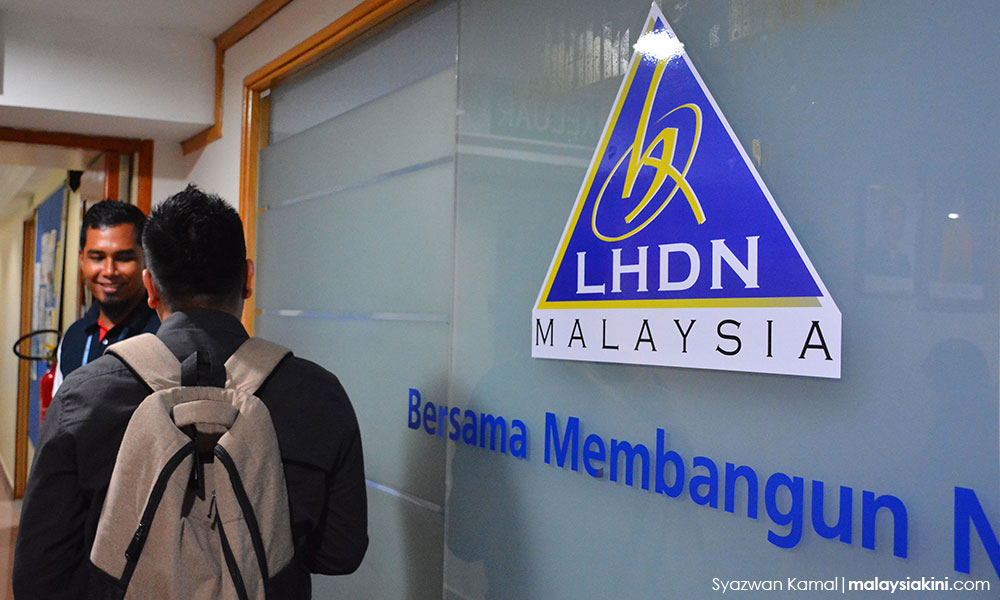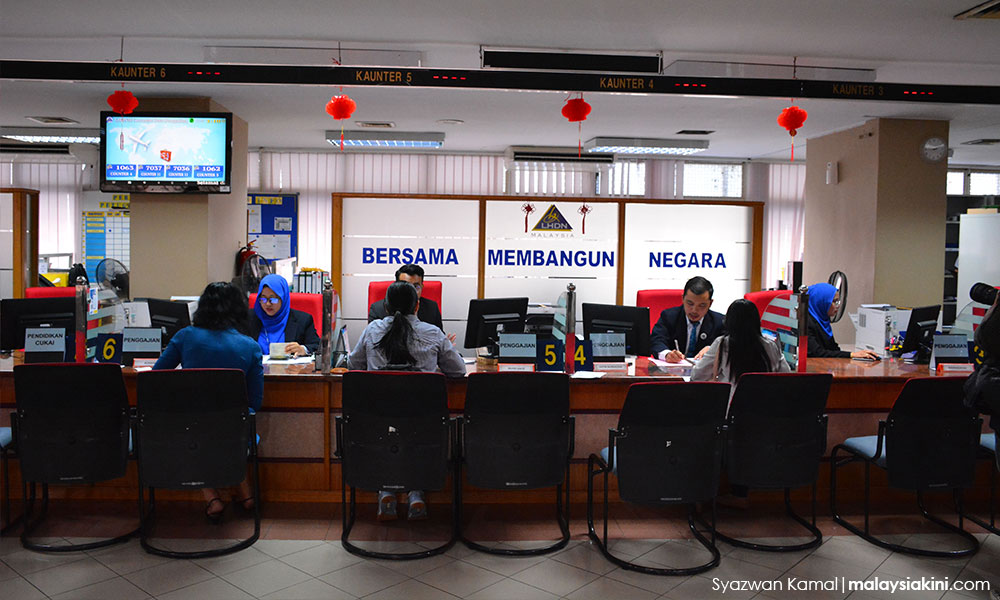COMMENT | The Inland Revenue Board has announced administrative concessions to taxpayers, through its updated circular issued on June 3, 2021, in light of the recently announced movement control order, which is now better known by the acronym MCO 3.0.
1. Are the IRB offices open during the MCO 3.0?
Unlike the previous MCO whereby all IRB offices are closed during MCO period, several IRB offices will operate during MCO 3.0 in order to facilitate the receipt of tax payments namely:
• The IRB’s Payment Centre Counter (Kuala Lumpur, Kota Kinabalu and Kuching) will operate from 8am to 12 noon on weekdays.
The services provided are cash and cheque payments for withholding tax, real property gains tax remission, tax compound and other tax-related payments. Payments for income tax and other taxes can also be made by debit and credit cards.
• The stamp duty counters at the IRB branches will operate from 8am to 12 noon, with prior appointments.
The IRB Hasil Care Line and Hasil Live Chat will continue to operate on working days from 9am to 4pm and 9am to 5pm, respectively. The MyTax (ezHasil) will operate for 24 hours. Further details on services provided by the IRB throughout the MCO 3.0 period can be found here.
2. What is the extended filing period for tax returns?
The filing of the income tax return forms for companies, limited liability partnerships, unit trusts, property trusts, co-operative societies, trust bodies, real estate investment trusts/property trust funds and business trusts for the years 2020 and 2021 remains the same as stated in the IRB’s income tax return form guide, which is available here.
However, a one-month extension is given until July 31, 2021, for taxpayers carrying on business involving individuals, resident individuals (knowledge/expert workers), non-resident individuals, non-resident individuals (knowledge/expert workers), partnerships, associations, deceased person’s estate and Hindu joint families. The ordinary filing date would have been 30 June 2021.
Additionally, the filing date of CP500 and CP204 amendments, which are due on June 30, 2021, is extended to July 31, 2021.
Unlike the previous MCO, the filing dates of other tax forms will only be extended based on the merits of the case. For instance, the submission of a statement of monetary and non-monetary incentive payment to an agent, dealer or distributor (Form CP58), the application for extension of time must be submitted via letter or e-mail to the relevant IRB Branch which handles the case. This is also the case for country-by-country reporting, whereby an application must be submitted in writing to the IRB’s Department of International Taxation.
Where the submission of tax estimate submission (CP204) and notification of change of accounting period (CP204B) is due on June 30, 2021, the due date is extended until July 31, 2021. The CP204B must be submitted via post or courier.
3. Is the timeline for tax payments extended as well?
No extension of time will be given for tax estimate payments (Form CP204) as well as all other tax instalments relating to audit and investigation which are due in June 2021. Further, no extension is given to submit monthly tax deduction data and to make monthly tax deduction payment for taxes deducted from an employee’s remuneration, which are due on June 15, 2021. Taxpayers are required to make the necessary payments via online services at e-PCB, e-DataPCB and e-CP39.

Additionally, no deferment is given for compound payment which should be paid in June 2021. However, the IRB has stated that it is prepared to consider on a case by case basis the rescheduling of tax instalment payments provided that taxpayers support the application for deferment with relevant documents such as financial cash flow statements.
4. Regarding withholding tax payments, is there any and special arrangement before?
The IRB has yet to announce if a similar extension will be given as before to withholding tax payments due during the MCO 3.0 period. Accordingly, taxpayers are advised to file their withholding tax forms and remit the necessary payment within the time prescribed under the Income Tax Act 1967.
5. What would be the status of tax audits and investigations during the MCO?
Unlike the previous MCO, the IRB has not granted an automatic extension of time for taxpayers to submit documents and respond to IRB’s queries in relation to tax audits and investigations.
Instead, taxpayers will have to apply for an extension of time via letter or email to the IRB branch which handles the audits and investigations. The application for an extension of time will be considered by the IRB on the merits of the case.
In light of the lockdown and the Ministry of Health’s advice for the public to stay home, one would have thought that the IRB should have just granted an automatic extension of time.
6. What are the tax reliefs provided in the Pemerkasa Plus stimulus package?
Owners of business premises who offer at least 30 percent rental discounts to tenants which are SMEs or non-SMEs until Dec 31, 2021, will be granted a special deduction from their income tax. Further, sales tax exemption for completely knocked down (CKD) and imported complete-built up (CBU) is extended until Dec 31, 2021.
Additionally, the exemptions from tourism tax and service tax on accommodations provided by hotel operators announced as part of the Pemerkasa programme on March 17, 2021, will continue until Dec 31, 2021.
It was also mentioned that the IRB may consider appeals for the postponement of penalties to the year 2022 as well as the rescheduling of tax instalment payments for affected taxpayers and businesses.
7. How about the filing of appeals to the Special Commissioners of Income Tax (SCIT)?
There is no positive assurance from the IRB that the submission of notices of appeal to the SCIT (i.e. Form Q) during the MCO 3.0 period is automatically extended. Taxpayers are required to submit the application for extension of time (i.e. Form N) to their IRB branch and state that the delay in the filing of Form Q was due to the implementation of MCO 3.0. The appeal will be considered by the IRB based on the merits of the case.
In light of the uncertainty that the Form N will be automatically accepted, taxpayers are advised to file the Form Q within the prescribed time via e-mail or fax.
8. What happens to the tax appeals before the courts?
All tax matters, including tax appeals fixed before the Special Commissioners of Income Tax (SCIT) between June 1, 2021, and June 14, 2021, are adjourned. The SCIT will fix new dates and advise the parties concerned the soonest. Similarly, all customs appeals before the Customs Appeal Tribunal are also adjourned.

Most tax appeals before the superior courts, including judicial review proceedings, are also adjourned during MCO 3.0. In very urgent cases, they may be heard via online hearing. Case management is still taking place online by way of e-review, where parties, including the court officials, need not be physically present in court.
9. What is the position in respect of stamping of documents and payment of stamp duty?
Stamping of documents is made via the Stamp Assessment and Payments Systems (Stamps), a system that allows online application and payment for stamp duty. Stamps can be used by legal firms, companies, partnerships and businesses registered with the Companies Commission of Malaysia.
For taxpayers who have used Stamps, they may print the stamp certificate after the payment is successful and attach the certificate to the physical document. Businesses may verify the stamp certificate by downloading the “Semakan Ketulenan Sijil” smartphone application, or online here.
Taxpayers who are unable to register as Stamps users will have to stamp their documents manually at the IRB’s Stamp Offices nationwide from 8am to 12pm, with a prior appointment.
However, in cases where the document cannot be stamped on time, appeal on the penalty imposed for late stamping will be based on the merits of the case.
10. Are similar extensions granted to real property gains tax (RPGT) matters?
The filing of RPGT returns due in June 2021 is extended to July 31, 2021. However, the IRB’s announcement is silent on matters pertaining to RPGT payments, including those pursuant to a notice of assessment or RPGT retention sum by the acquirer. In this regard, one should assume that the usual timeframe for such payments shall continue, although the IRB has given an assurance that any penalty imposed (which we assume to include late filing payment) will be considered on the merits of the case.
S SARAVANA KUMAR and NURUL IMANI HAMZAH are with the law firm Rosli Dahlan Saravana Partnership.
The views expressed here are those of the author/contributor and do not necessarily represent the views of Malaysiakini.

